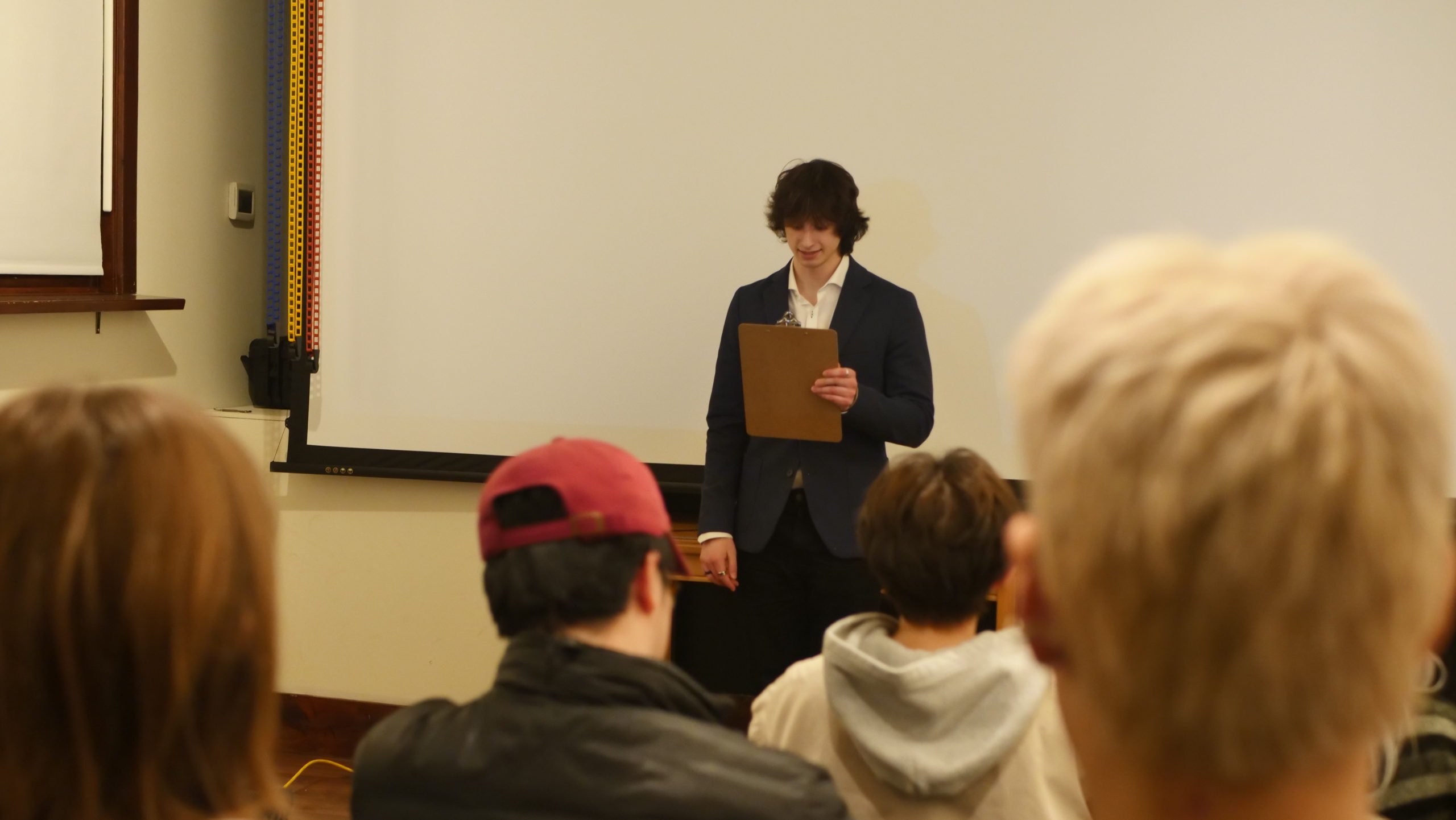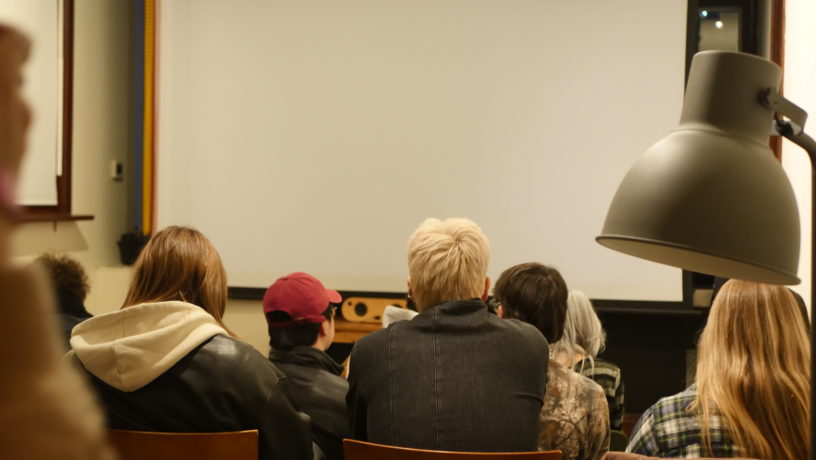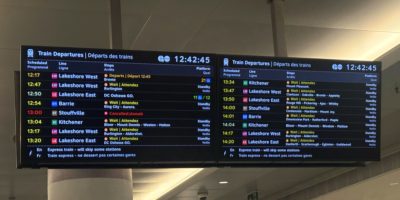By Avari Nwaesei
The student-led short film Parrot explores the concept of artificial intelligence (AI) that is used to harvest the identities of real people to be used for artificial humans. The company in the film advertised their services as a way for people to still be a presence in their loved ones’ lives after death. The movie rises in conflict as they refrain from sharing information outside of what the contributor intended.
The film premiered at the cafe and studio space, Nabulu Coffee, in Toronto on Jan. 18, selling out the first screening.
The AI-themed thriller was directed by Marcus Chen, a Toronto Metropolitan University film studies graduate. With their original film working as a proof of concept, the crew was fully funded by the Society of The Creative School (SCS) for this screening.
The original film only had 48 hours to be produced for a competition. However, the crew shot an extended version of the film which was shot from April to December of 2024 at Nabulu Coffee, which provided ample time for plot development.
In Parrot, characters who signed up to get an artificial version of themselves had to answer a series of questions about their lives in order to get information to properly set up the AI. However, the AI lacks raw human emotion as the artificial humans then regurgitate any information that was gathered by insurance companies.
Chen said he wanted to make a film that urged people to “stay aware and interested” when dealing with AI. He educated himself on this idea in books published in the ‘60s and ‘70s on the topic of technology in preparation for the shoot.
“This is kind of what we really envisioned for the film”
“I went through these books on AI and how it’s going to affect everyday life and I couldn’t finish because I was too freaked out,” said Chen.
He highlighted the significance of the “extreme capabilities” AI possesses and its potential to produce “good horror” and “thriller themes,” which is what the original version of Parrot capitalized on to create suspense for the viewer in a short period of time.
On the day of Parrot’s premiere, the cafe was filled with students present to support their friends, professors thrilled to see their students’ hard work and actors who were a part of the array of films shown. Teresa Van, a second-year RTA student and line producer for Parrot, revealed that the lead-up to the event was stressful due to high anticipation.
“Our friends and family and students in our faculty are showing up, I find it so cool to have events at a cafe,” said Van.

Similar to Chen’s recognition of AI’s ability to create a compelling thriller, Quentin Chen, a second-year RTA media production student and the film’s director of photography, referred to the original film as the “skeletonized version” that prioritized spectacle in order to get the audience excited. “This is kind of what we really envision for the film,” said Chen.
Bekah Kiiffner, a second-year RTA media production student and assistant director of the film, held her ideations for the film. Prior to working on Parrot, she gathered the idea that each generation faced an advancement that was developed during that time period in which individuals believed could mark the “end of the world.”
“I think it’s interesting to explore (AI) and have a film where people can look at it and think, this is how people perceived it at the time,” said Kiiffner.
When it comes to the notion in the film that AI can one day become a tool that will eventually become intertwined with various fields of work, Julia Abou-Akl, a second-year RTA media production student and casting director, couldn’t have disagreed more.
“They can try to attempt to recreate it but in the end, it’s nothing like taking from people’s real-life stories and their real-life experiences,” said Abou-Akl.
Sara Sadrolhefazi, one of the owners of Nabulu Coffee, not only let her space be used for the screening but also let the crew use it as a film location. She said she found the film to be a reflection of the pros and cons of AI which is now a part of everyone’s lives.
“Besides the production aspect of acting, production, cinematography and everything that was really well done, the story about AI was really thought-provoking,” said Sadrolhefazi.
The event gave Nabulu Coffee the opportunity to do its job as a creative studio. Sadrolhefazi said she was proud to have supported Parrot through the creative space they supplied them since it’s part of how their complex operates.
“We’re glad that we’re becoming known as a staple community space for students and artists alike in downtown Toronto,” she said.
Both crews of Parrot and Nabulu’s hard work to make this screening as extravagant as possible was well received by those in attendance.
“I think it’s interesting to explore that (AI) and then have a film where people can look at it”
RTA media production program director Karen Sebesta was there to offer her support to the student filmmakers. “We have so many student events, but I do try to go out to several a year just to keep in touch with what the students are doing,” she said.
Sebesta also had nothing but positive things to say about the event. “Kudos to their organization,” she said. “It’s fabulous that they are truly pursuing their dream of working in creative spaces by doing things outside of school work.”












Leave a Reply